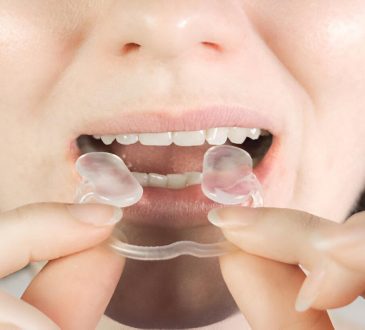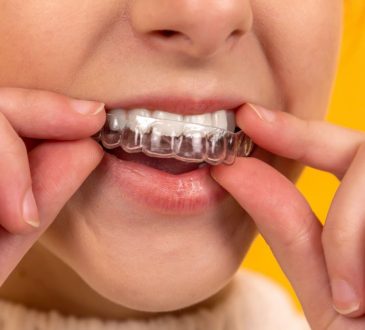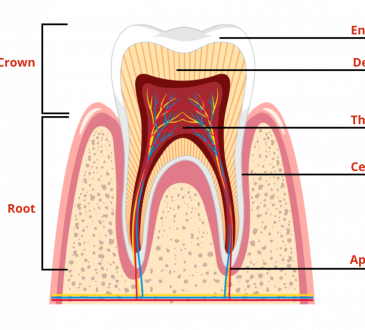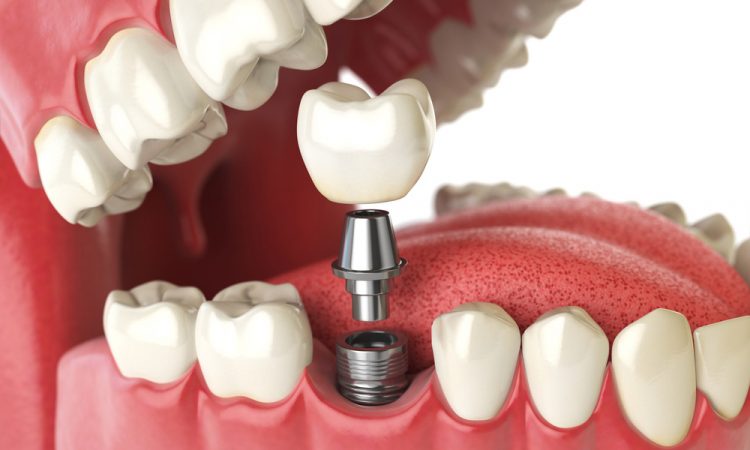
Dental implants are a popular solution for replacing missing teeth, offering a permanent, natural-looking alternative to dentures or bridges. While the procedure itself has a high success rate, proper care and lifestyle adjustments after getting dental implants in melbourne are crucial to ensure the longevity and success of the implants. In this article, we’ll explore the necessary lifestyle changes and aftercare steps you should consider after undergoing a dental implant procedure.
What Are Dental Implants?
Dental implants are titanium posts surgically placed into the jawbone to replace missing tooth roots. Once integrated with the bone through a process called osseointegration, these posts act as stable anchors for replacement teeth, such as crowns, bridges, or dentures. Dental implants are known for their durability and natural appearance, providing a long-term solution for tooth loss.
Why Aftercare is Crucial for Dental Implants
Dental implants are a significant investment in your oral health, and proper aftercare is essential to ensure that the implants integrate successfully with the jawbone and that the surrounding tissue heals properly. The first few weeks after getting dental implants are particularly important, as this is when your body is adapting to the new implants. Any lifestyle changes or habits that could interfere with healing should be addressed immediately to avoid complications like infection, implant failure, or gum issues.
Lifestyle Adjustments After Getting Dental Implants
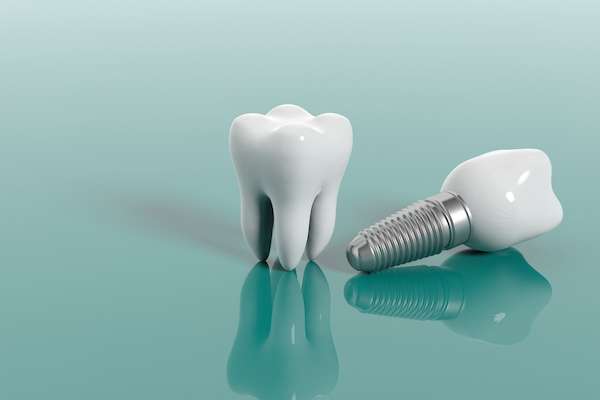
While most people can resume their normal routines after the initial recovery period, there are certain lifestyle adjustments that can help ensure the success of your implants and contribute to long-term oral health. Here are some key considerations to keep in mind:
1. Diet and Eating Habits
One of the most important adjustments you’ll need to make after getting dental implants is your diet, especially during the first few weeks of healing. Immediately after the procedure, your mouth will be sensitive, and you may experience swelling or discomfort. To ensure a smooth healing process:
- Eat soft foods: Stick to soft, easy-to-chew foods like mashed potatoes, yogurt, smoothies, and soups. Avoid hard, crunchy, or chewy foods that could put pressure on the implant site and disrupt healing.
- Avoid very hot or cold foods: Extreme temperatures may cause discomfort or sensitivity around the implant area.
- Take small bites: If your implants are located near the back of your mouth, try to chew on the opposite side to avoid putting too much pressure on the healing area.
After the initial healing period, you can gradually return to a normal diet. However, it’s a good idea to continue avoiding very hard foods, like nuts or ice, which could potentially damage your implants.
2. Avoiding Certain Habits for Implant Success
Certain habits and activities can hinder the healing process or even damage the implants over time. Here are some lifestyle factors to be mindful of:
- Avoid smoking: Smoking can significantly delay healing and increase the risk of implant failure. The chemicals in cigarettes can affect blood circulation and reduce the success rate of osseointegration (the process of the implant fusing to the bone).
- Limit alcohol consumption: Alcohol can interfere with your body’s natural healing process. It’s best to limit alcohol intake in the first few weeks after the procedure to promote healing and reduce the risk of complications.
- Don’t grind or clench your teeth: If you have a habit of teeth grinding (bruxism) or clenching, it’s important to address this issue, as it can place excessive pressure on your implants and cause damage. Your dentist may recommend wearing a night guard to protect your implants while you sleep.
3. Oral Hygiene Practices Post-Implants
Maintaining excellent oral hygiene is crucial to the success of your dental implants. After getting implants, you need to take extra care to keep the area clean and avoid infection. Here are some tips:
- Brush gently: Use a soft-bristled toothbrush to avoid irritating the implant site, especially in the first few days after the procedure.
- Rinse with saltwater: Saltwater rinses can help promote healing and reduce inflammation. Your dentist may recommend rinsing with warm saltwater several times a day, especially after meals, to keep the area clean.
- Use an antibacterial mouthwash: Your dentist may suggest an antibacterial mouthwash to prevent infection, but avoid using mouthwashes with alcohol, as they can irritate the gums.
After the initial healing period, you should be able to resume your regular oral hygiene routine, including brushing and flossing around your implants.
4. Managing Pain and Swelling After Dental Implants
It’s normal to experience some swelling, bruising, and discomfort in the days following dental implant surgery. To manage these side effects:
- Take prescribed medications: Follow your dentist’s recommendations regarding pain relievers or antibiotics.
- Apply ice packs: Applying an ice pack to the outside of your face can help reduce swelling during the first 24-48 hours.
- Elevate your head: When resting or sleeping, keep your head elevated to minimize swelling.
If you experience severe pain, excessive swelling, or signs of infection (like fever or pus), contact your dentist immediately.
5. How to Protect Your Implants Long-Term
To ensure your implants last for many years, follow these long-term care tips:
- Regular dental check-ups: Visit your dentist regularly for check-ups and cleanings. Professional maintenance helps prevent plaque buildup around your implants, which can lead to gum disease or implant failure.
- Avoid excessive force: Be mindful of using your teeth as tools (e.g., opening packages or biting down on hard objects). This can put excessive pressure on your implants and damage them over time.
- Maintain a healthy diet: Eating a balanced diet that’s rich in vitamins and minerals, especially calcium and vitamin D, helps maintain the health of your bones and gums, which supports the success of your implants.
6. Can I Smoke After Getting Dental Implants?
Smoking is one of the biggest factors that can hinder the success of your dental implants. Nicotine reduces blood flow to the gums and bone tissue, delaying healing and increasing the risk of infection. Most dentists recommend quitting smoking for at least a few weeks before and after your implant procedure. The longer you can refrain from smoking, the better the chances of your implants integrating properly and lasting for many years.
7. When Can I Resume Normal Activities After Implants?
While you can typically return to work and other regular activities within a few days after getting dental implants, it’s essential to avoid strenuous physical activity for at least 2 weeks. Intense exercise can increase blood flow to the mouth, causing more swelling and potentially interfering with healing.
After the initial recovery period, you can gradually resume your normal activities, but always check with your dentist for specific advice regarding your recovery timeline.
8. Regular Check-Ups After Dental Implants
Even though dental implants are designed to be long-lasting, regular dental check-ups are essential to monitor the health of your implants and surrounding tissues. Your dentist will examine the condition of your implants, ensure they are securely in place, and check for signs of infection or other issues. Regular check-ups will also help maintain overall oral health and address any concerns before they become major problems.
Conclusion: Ensuring the Success of Your Dental Implants
Dental implants offer a lasting, natural-looking solution for replacing missing teeth, but they require proper aftercare and lifestyle adjustments to ensure they stay in good condition. By following the guidelines for oral hygiene, diet, and habits that support your implants, you can enjoy the benefits of your new smile for years to come. Regular check-ups with your dentist are essential to maintaining the health of your implants and your overall oral health. Always consult your dentist for personalized aftercare advice to maximize the success of your dental implants.
FAQs
1. How soon can I eat after getting dental implants?
It’s best to stick to soft foods for the first few days to avoid putting pressure on your implants. Gradually reintroduce harder foods after the first few weeks.
2. How long do dental implants last?
Dental implants can last a lifetime with proper care, but the crowns or other restorations on the implants may need to be replaced every 10-15 years.
3. Can I drink coffee after getting dental implants?
While it’s generally safe to drink coffee, you should avoid hot beverages for the first few days after the procedure to prevent discomfort and swelling.
4. Is it necessary to quit smoking after getting dental implants?
Yes, quitting smoking is highly recommended, as it can negatively affect the healing process and the long-term success of your implants.
5. Can I play sports after getting dental implants?
It’s best to avoid contact sports or strenuous physical activities for at least 2 weeks after getting dental implants to allow proper healing.


